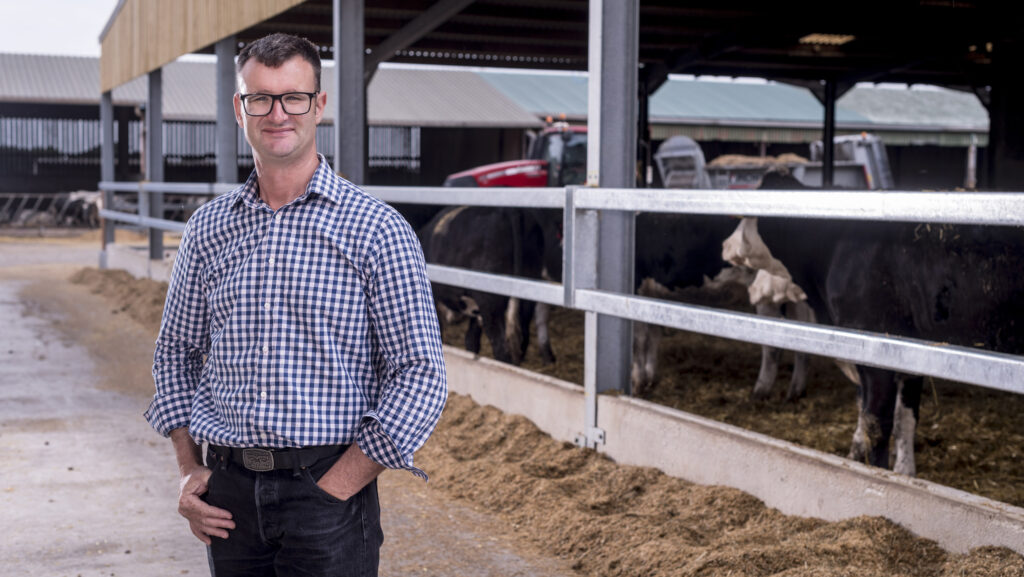Opinion: Too many farmers are trapped on ‘big ag hamster wheel’
 Doug Dear © Jim Varney
Doug Dear © Jim Varney What a state UK agriculture is in at the moment, with commercial farmers pitted against agri-corporates, and some commodities running at all-time highs and grain prices at all-time lows.
There is a world oversupply of grains, especially maize, and a lack of proteins. Maize can adapt to climate change, so the warmer drier weather means yields keep increasing.
The more maize that is dumped on the market, though, the cheaper other grains, including wheat, have to be to compete.
See also: Opinion – we need more ‘bums on seats’ not more robots
If we keep taking prime grazing land out of production to grow mediocre cereals because it’s easier, all we do is exacerbate the problem. Less livestock means less cereal demand.
Then some processors with no foresight start limiting the scale of feed lots, poultry houses and dairies, which only adds to the problem.
It’s all about numbers and scale to reach a decent margin.
It’s a tightrope we walk and, if you’re not careful, dropping millions into bigger equipment and paying higher and higher rents to create “efficiencies” within the operation does not always get you off the big ag hamster wheel.
Far too many producers are trapped in a vicious circle caused by running on super-tight margins.
Unable to release more funds through the bank or profit, they are now in the pockets of big ag corporates and take financial credit for inputs from the very people who control the market prices.
For the corporates, it’s a win-win, but for the producer it’s unsustainable.
UK ag has a sense of foreclosure about it, just like when an elevator shuts down on the prairies in the Midwest, the central hub of the community disappears where all the grain is collected and then the town and ancillary industries around that elevator collapse.
I’m not sticking up for corporate ag, far from it, but there are other factors which are as, or more, responsible for putting farming into terminal decline.
They include the effects of government policy, climate change, large swathes of land being taken out of production for the Sustainable Farming Incentive, PV schemes and housebuilding – all are taking their toll.
The only thing that processors and traders want is continuity of supply and, if we as an industry can’t guarantee that, then they will look to someone who can.
This is the situation we are in now with grains – we have been undercut and the foreign importers can guarantee supply.
We’re going to have to suck up the next four years of a government that seems intent on destroying us
We’re going to have to suck up the next four years of a government that seems intent on destroying us.
But given it seems unlikely Labour will have another term, we need to get our ducks in a row for the next administration and ask ourselves some tough questions.
How much power should the Environment Agency, coupled with Natural England, have? Not only could they bring agriculture to its knees, but also UK business.
What is Defra actually doing for us now, when the Treasury rules the roost?
Perhaps the central question, though, is if there is going to be public money for public goods, do we want to be park keepers or concentrate on production?
Production builds confidence within our UK-based infrastructure, and stops us dropping below critical mass.
What big ag and the processors have to understand, though, is that those of us who are left will be battle hardened, bigger, more intensive and will definitely be able to use a calculator.

